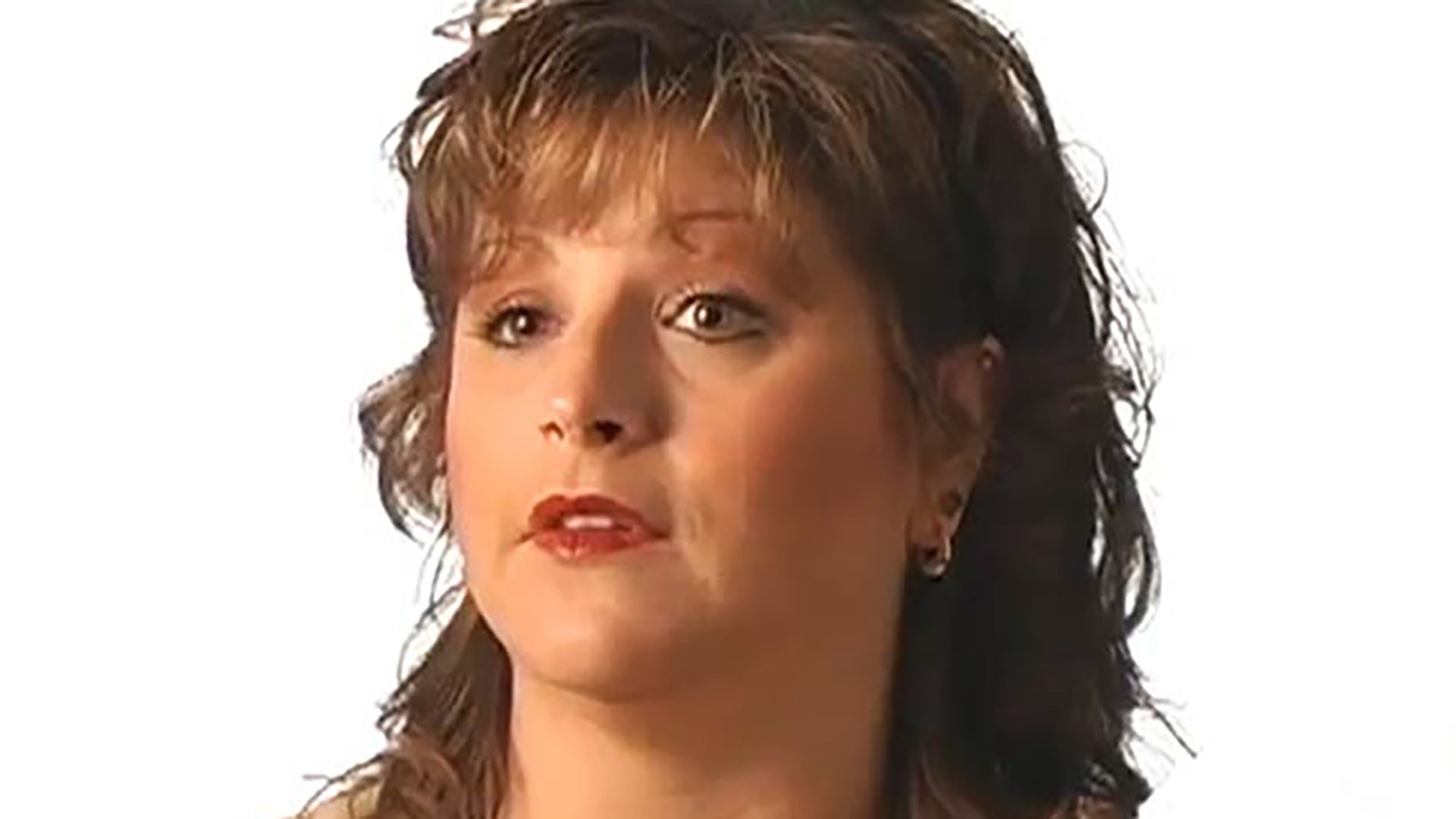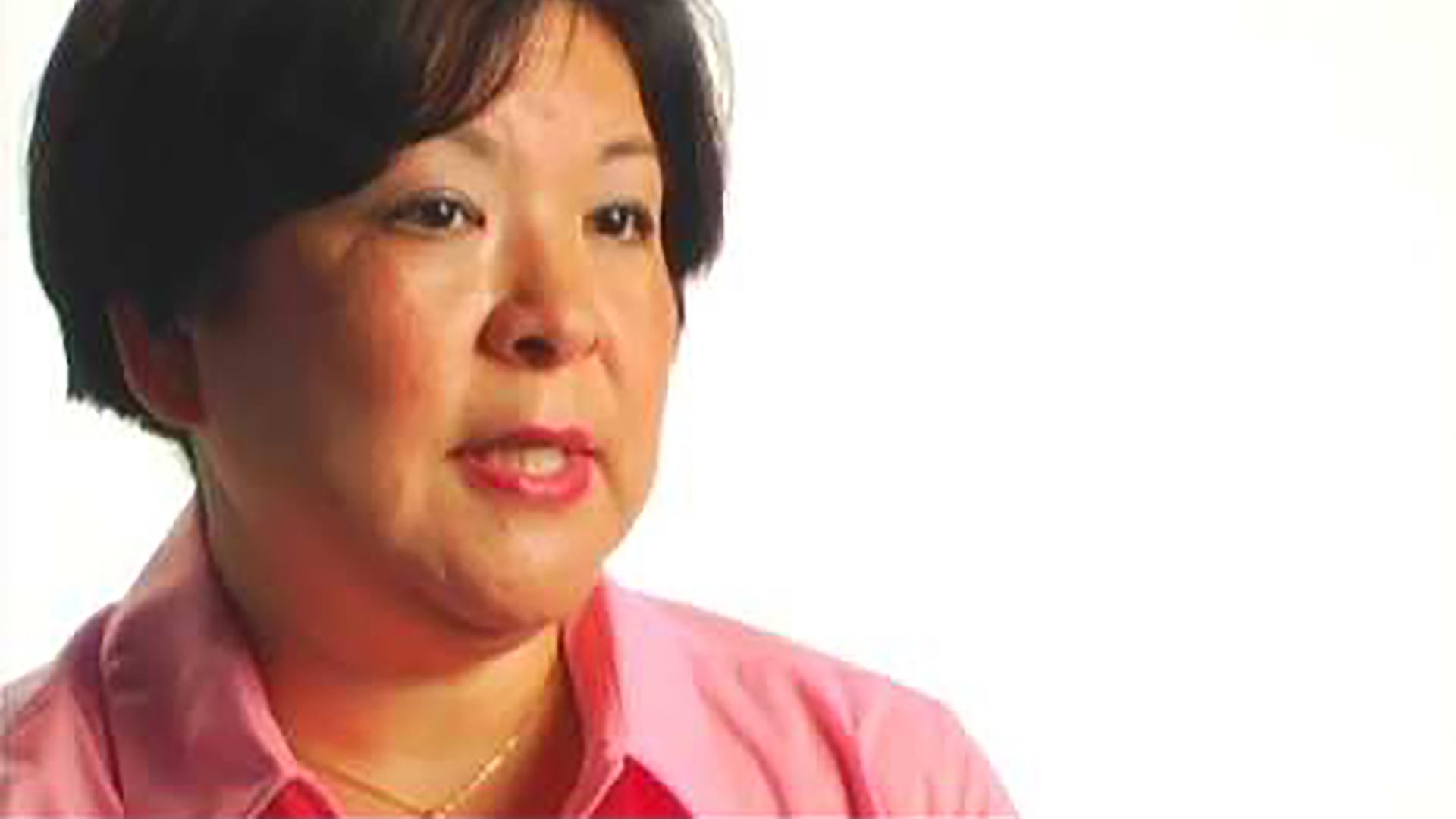Survivor Interview – Heather T.
Heather is a metastatic myxoid vulvar sarcoma survivor. She talks about managing chronic pain, dealing with sadness and depression, and talking to others about her survivorship.

I became a cancer survivor in 1992. It’s metastatic because it returned in 1998. What I have is so rare that the first time I was diagnosed, the doctors didn’t know how to treat it. They did surgery to remove the tumors in my left groin. They scanned me for several years. Unfortunately, they were only scanning that area. In 1998, I had a backache which I thought was just a backache. I went to the walk-in clinic, thinking that they would just give me some good drugs and send me home to lie down. When they did a chest x-ray, they saw the masses in my right lung. It was at that point that I mentioned to the doctors that I was a cancer survivor, and they sent me in for a CAT scan. That’s when the roller coaster ride really began.
My right lung was loaded with cancer. Your lungs have absolutely no nerve endings. The reason that I had a backache was because those seeds spit off into my pleura lining, and that’s when my back started to hurt. The scary thing is, we don’t know how long it had been growing in my lungs. We don’t know if it had been six months or six years. The doctors quite frankly were somewhat panicked, because (a) they didn’t think it was gonna come back, (b) when it did come back, it was a lot in my lung, and that concerned them. They were afraid that there wasn’t enough chemo to kill everything that was in my lung. But it was so spread out, they didn’t think that there was a surgery available.
I was really blessed that there was a new doctor who used a new procedure, called cherry picking. He went in, and I had lung surgery. They plucked out as much of the cancer as they could. However, when they were in there, they found that there was also cancer on my diaphragm. At that point, they didn’t know, was there cancer in the left lung? So they thought it would be safer for me to go ahead and go through chemotherapy. Being that there is no actual chemotherapy that is set for my cancer, they gave me two different types of chemo: Adriamycin and Ifex with mesna. The chemo made me very, very sick. I went through four rounds of chemotherapy.
I have chronic pain. The pain is caused by the lung surgery. It has nothing to do with the chemotherapy. My thoracic surgeon said to me he had to open the trunk a little wide to get to what he had to get to. They’re thinking I’m gonna have pain forever. They had to break through a lot to get to the lung to get to all that cancer. They sent me home with a lot of drugs. They kept me on the morphine and the Percocet for about six weeks round the clock, which is a lot. When I started my chemo, I had become so sick that they wanted to yank me off of all of this pain medication. They thought that it was tearing up my stomach lining, so they said, “You can’t do the chemo and have all these drugs.” Unfortunately, because they didn’t taper me off like they usually do, I just plummeted into a black depression. It was actually my nurse practitioner at my oncologist’s office that suggested the amitriptyline. As long as I’m taking the amitriptyline, I’m fine.
They talked to me about fatigue. I didn’t understand fatigue until I went through it. They said that there were new drugs out that would help me, so that I wouldn’t be so nauseous and so sick. Unfortunately, they didn’t work for me. The doctors did everything they could, but my body just did not like that chemotherapy at all. It took about a year for me to really feel normal again. Not knowing any better, I expected once the chemo ended, the symptoms would end. However, I really couldn’t go back to work until about two months after my last chemo treatment. The biggest problem that I had was stamina. I couldn’t get around like I used to. I would want to nap in the middle of the day, and that’s difficult when you’re trying to hold down a job. I was very frustrated with the fatigue, because I couldn’t even stand up and brush my teeth. I would have to sit on the toilet seat to brush my teeth, because I couldn’t handle standing. It was hard to take a shower. I’m sure it’s frustrating at any age, but at 29 years old, it’s extremely frustrating, because you want to be out running with all your friends, going to the movies or going to Wal-Mart. I couldn’t go to Wal-Mart and shop or go to the grocery store and buy groceries. I’d have to send somebody else. That was very depressing.
It got to the point where you lay there and you have too much time to think. As difficult as it was in the past for me to discuss this, I became suicidal. I had suicidal thoughts go through my head, because I didn’t think the pain would ever go away. One day when I was laying in the bed, this phrase popped into my head that ’if we stand and face the battle, we cannot lose the war.’ That’s what saved my life, because I was ready to take a bottle full of pills that day. So I got up, took a legal pad of paper and I wrote that phrase over and over and over. All day long, I just wrote that phrase. I decided, at that moment, that I was going to be stronger than this, and I was gonna get through it. I was not raised in the church, but I have a strong belief in God. I believe that He has a plan for me, and I’ve yet to figure out what it is. I may never figure out what it is. Treatment will end eventually and life does go on. The emotional aspect of it was harder for me to get past than the chemo and the surgery, because you’ve got to learn to live as a survivor.
I’m very open about my cancer. I tell people that I’m a survivor for many, many reasons. I love being able to stand up and speak to other cancer survivors, maybe to give them a little ray of hope, because there were people that talked to me when I was going through it. As far as sharing it with friends and family, I like to make people aware of issues that are going on, benefits that are going on, Cancer Society benefits. I’m not a breast cancer survivor, but I still do the Race for the Cure every year, because cancer is cancer, regardless of where you had it. I believe that cancer research, even if it is specific for one type of cancer, can help other people. I do talk to people about going and getting checks. If you go to a doctor and truly believe that what is going on needs to be looked at, and if you feel like that doctor is not as concerned as you are, then you go get a second opinion or you tell him, “I want a test. I want something done.” I don’t try to scare people, but I also don’t want to see people stick their head in the sand and act like it’s gonna go away, because it doesn’t. The quicker you’re diagnosed, the better chance of survivorship you have. It’s really important that people go out and get their checks.
When I was diagnosed in 1998, I was having some difficulties at my job. I wanted to leave, but I was very concerned about health insurance. You have to have it. Once you are a cancer survivor, you are a red flag to any health insurance company. I did go work for a very large company, and I had wonderful health benefits. I actually changed jobs a few months ago, because of the stress of my last job. I couldn’t stay at my job just because of the benefits, and I had wonderful benefits. I have now gone to work for a small company, and I did tell them that I was a cancer survivor. We have made an agreement that I’m gonna stay on COBRA. I pay about $335 a month for COBRA, which is a lot of money. They’re gonna pay a part of my COBRA, because for them, it’s less expensive for me to stay on COBRA than it is for me to go on their insurance. However, COBRA’s only good for 18 months. If I was to get sick again, I know through my company that I would have short-term disability. However, I also know that I would have a deductible. That makes it difficult, because you have to always put a little money away. You never know if you’re gonna need it. It’s like that rainy day that you hope doesn’t come around. So I live a very modest lifestyle. As long as I’ve got a job and I know I have health insurance, I feel pretty secure.
My name is Heather Taylor. I am 34 years old, and I am a 12-year cancer survivor.

